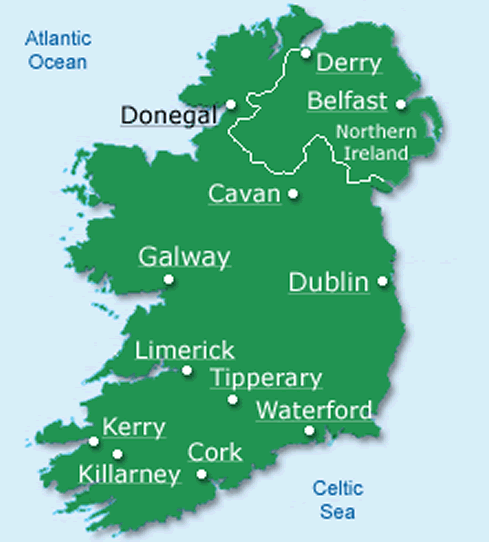Europe's eyes back on Ireland as Czechs approve Lisbon
 Dublin - With the Czech Republic's parliament approving the Lisbon Treaty this week, the eyes of Europe will now once again be on Ireland, which rejected the treaty in a June 2008 referendum.
Dublin - With the Czech Republic's parliament approving the Lisbon Treaty this week, the eyes of Europe will now once again be on Ireland, which rejected the treaty in a June 2008 referendum.
Irish acceptance has to be achieved before the treaty, aimed at streamlining decision-making in the 27-member European Union, can come into force. Even though the Czech parliament has now approved the treaty, Czech President Vaclav Klaus has hinted he won't sign it until Ireland reverses its rejection.
"The Lisbon Treaty is dead for the moment. It is dead because one member state of the European Union turned it down in a referendum," the eurosceptic Klaus told reporters after the vote. "Therefore, my decision on its ratification is not on the agenda for the time being."
Last June, 53.4 per cent of Irish voters rejected the treaty, motivated by a myriad of concerns including fears about neutrality and a loss of influence in Europe, and worries that the country's favourable corporate tax regime would be jeopardized by EU tax harmonization.
However, the global recession has changed everything with Ireland harder hit than almost any other European country. Tax revenues, overly dependent on the construction and property sectors, have collapsed, forcing steep government borrowing, while unemployment has risen sharply. It is predicted that gross domestic product
(GDP) will decline by as much as 10 per cent this year.
Understandably, a country buffeted by such harsh economic winds has become keenly aware of the benefits of EU membership, with Iceland serving as the perfect example of what can befall a small, independent country in these tough times.
As a consequence, an Irish Times TNS/mrbi poll of 1,000 voters in February found that 51 per cent of Irish voters would now back the treaty if Ireland is given guarantees on key concerns such as taxation, abortion and neutrality. The no vote has declined to 33 per cent.
Irish Prime Minister Brian Cowen has committed to rerunning the referendum. After an EU summit in Brussels in December at which he received assurances, he said that "on the basis of today's agreement ... I am prepared to go back to the Irish people next year."
No date has been set for the second referendum but it is expected to be held this autumn.
Cowen's problem is that while polls have shown growing support for the treaty, his government is widely unpopular, blamed by many for the demise of the so-called Celtic Tiger which saw a decade of runaway growth.
His Fianna Fail party is expected to take a hammering in June European and local elections and party strategists will be hoping that by the time a Lisbon rerun comes around the electorate will have already exorcized its anti-government rage, allowing the treaty to be judged on its merits alone.
As with the original referendum, all the main political parties are backing the treaty. The main opposition will again come from the Libertas movement of millionaire entrepreneur Declan Ganley.
Libertas describes itself as "a pan-European political movement dedicated to creating a new, democratic, accountable and open European Union" and is fielding candidates across Europe for June's European Parliament elections. Ganley himself is running in Ireland's North-West constituency.
Ganley is confident of defeating the referendum again but most commentators believe that a badly shaken electorate coupled with a less complacent political establishment will ensure a yes vote for the Lisbon Treaty this time around. The Irish have form in this regard, originally rejecting the Nice Treaty in 2001 before accepting it in a rerun a year later.
Aside from in the Czech Republic and Ireland, the ratification has not been completed in Germany and Poland, whose presidents are yet to sign the charter. (dpa)